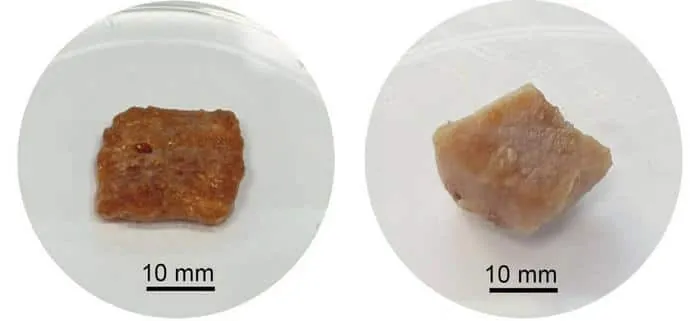
Revolutionary Sorghum Proteins Revolutionize Cultured Pork Production—Here’s What You Need to Know!
2024-11-18
Author: Arjun
In a groundbreaking study, researchers are harnessing the power of sorghum-based scaffolds to elevate the production of lab-grown meat, particularly pork. Gone are the days when lab-grown meat was merely a figment of our imagination; it is now a reality hitting U.S. restaurants in 2023. With the increasing demand for sustainable and ethical food sources, scientists are excited about innovations that leverage plant-based materials to facilitate meat cell growth.
According to a recent publication in the Journal of Agricultural and Food Chemistry by the American Chemical Society, the use of kafirin proteins extracted from red sorghum grain presents a significant advancement in cultured meat technology. Cultured meats offer a more ethical alternative by using real animal cells grown in laboratories, eliminating the need for livestock farming, which traditionally requires extensive land and water resources and contributes to greenhouse gas emissions.
Traditional scaffolds have mostly utilized water-soluble materials like wheat gluten, pea protein, and soy protein, which can be problematic for those with gluten sensitivities and often require additional processing. Enter Linzhi Jing, Dejian Huang, and their innovative team, who have successfully developed a gluten-free, water-insoluble protein scaffold composed of kafirin derived from sorghum.
Their method involves an ingenious technique where kafirin is extracted from red sorghum flour and used to create a porous 3D scaffold. This process involves infusing sugar cubes with the kafirin solution, allowing the proteins to adhere before dissolving the sugar in water, resulting in robust cube-shaped scaffolds. When pork stem cells were introduced to these scaffolds, researchers observed impressive results; within just 12 days, the cells not only attached themselves but also differentiated into muscle and fat cells akin to actual pork.
Nutritionally, the cultured pork produced through this fascinating process exhibited higher protein and saturated fat levels, while showing lower levels of mono- and polyunsaturated fats compared to raw lean pork. The vibrant red pigments from the sorghum not only gave the cultured meat an appealing pork-like appearance but also endowed it with antioxidant properties.
However, there’s still work to be done. While the appearance of the cooked meat remained consistent after boiling—all thanks to the stability of the sorghum-based proteins—the researchers plan to refine the nutritional profile and texture of the cultured pork further.
The promise of kafirin as a scaffold material paves the way for a new era in cultured meat production, potentially changing how we think about and consume meat. As innovations continue, consumers can expect a future filled with ethical, sustainable, and nutritious meat alternatives that could redefine the culinary landscape. Stay tuned for more exciting developments in the world of lab-grown meats!

 Brasil (PT)
Brasil (PT)
 Canada (EN)
Canada (EN)
 Chile (ES)
Chile (ES)
 España (ES)
España (ES)
 France (FR)
France (FR)
 Hong Kong (EN)
Hong Kong (EN)
 Italia (IT)
Italia (IT)
 日本 (JA)
日本 (JA)
 Magyarország (HU)
Magyarország (HU)
 Norge (NO)
Norge (NO)
 Polska (PL)
Polska (PL)
 Schweiz (DE)
Schweiz (DE)
 Singapore (EN)
Singapore (EN)
 Sverige (SV)
Sverige (SV)
 Suomi (FI)
Suomi (FI)
 Türkiye (TR)
Türkiye (TR)